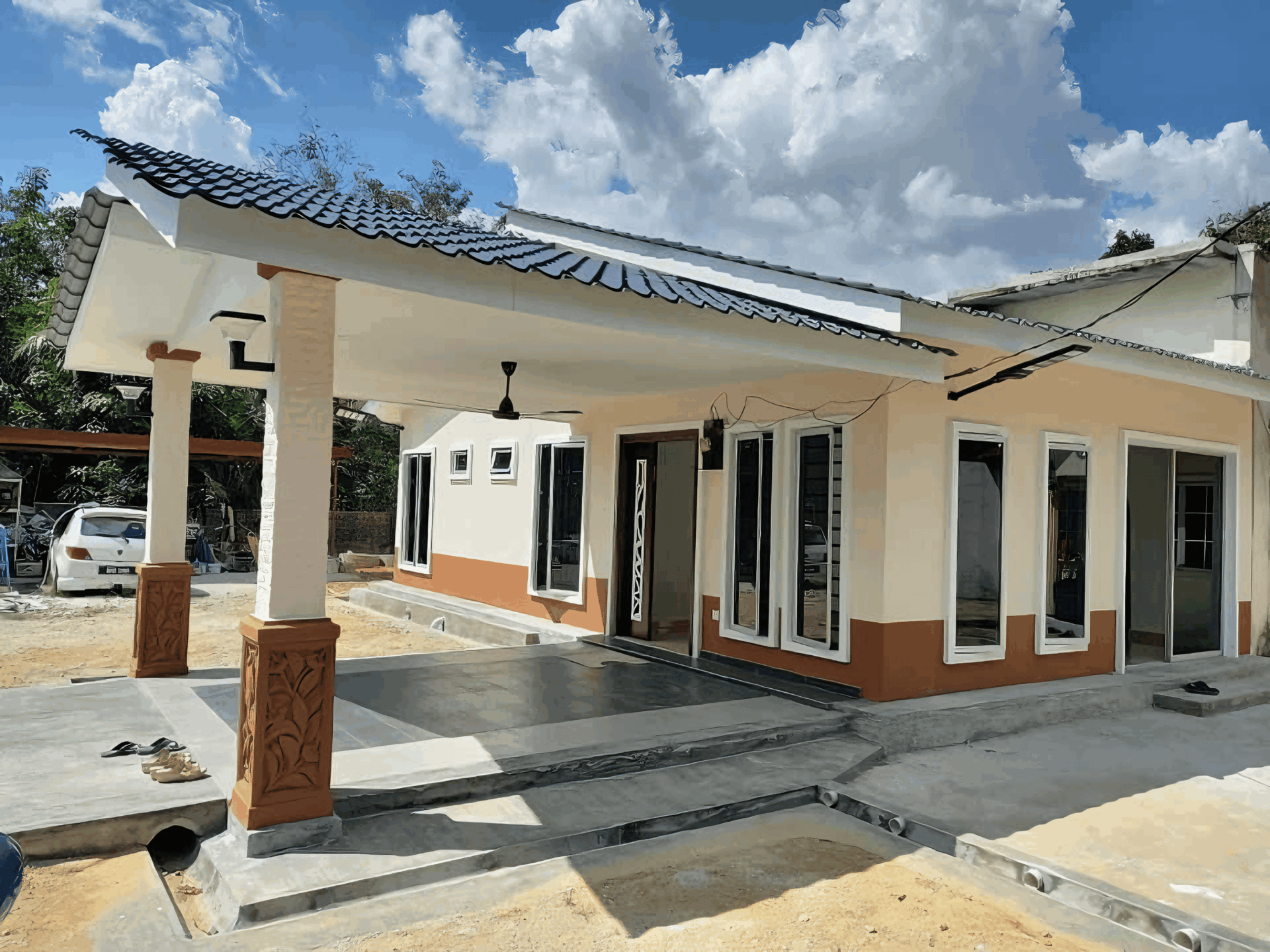Ever watched a structure rise from the ground up? It’s pretty fascinating, right? But behind every towering skyscraper or sprawling residential complex lies a secret ingredient that often goes unnoticed – milestones. In the fast-paced world of construction, milestones act like the checkpoints on a journey, guiding teams and keeping projects on track. They’re not just about hitting deadlines; they’re the backbone of successful construction management. In this article, we’ll dig into why setting and meeting these milestones is essential for achieving not just any construction project, but one that stands the test of time. So, whether you’re a seasoned pro in the industry or just someone curious about how things get built around here in Malaysia, stick around! You’re about to discover how milestones could be the secret sauce that transforms your construction experience.
Understanding Construction Milestones and Their Importance
When diving into a construction project, grasping the concept of milestones is truly crucial. These milestones are essentially key events or targets that mark significant points in the project timeline. Think of them as the crucial GPS coordinates guiding the team along the winding road of construction. By breaking down a project into these manageable chunks, it becomes much easier to navigate complexities and assess progress. Each milestone not only signals the completion of a phase but also boosts team morale and accountability.
Achieving milestones is like celebrating mini-victories throughout the construction journey. They provide the perfect opportunity to stop, assess, and recalibrate if necessary. For instance, when you reach a milestone, it’s a good time to evaluate the project’s budget, timeline, and scope. This continual assessment ensures that the project remains on course. Moreover, a clearly defined milestone schedule can instill confidence in stakeholders, as they can see tangible progress and understand the project’s trajectory. Here are some benefits of tracking construction milestones:
- Improved Project Management: Milestones simplify the monitoring of progress and provide a visual representation of the project’s health.
- Enhanced Communication: Keeping everyone in the loop fosters teamwork and collaboration, ensuring that stakeholders are informed throughout the process.
- Early Problem Detection: Identifying potential issues during milestone evaluations allows for timely interventions.
To make this even clearer, take a look at the following table that outlines common construction milestones and their typical objectives:
| Milestone | Objective |
|---|---|
| Project Kickoff | Align team vision and project objectives. |
| Foundation Completion | Ensure structural integrity and start vertical construction. |
| Framing Completion | Finalize layout and get ready for installations. |
| Final Inspection | Assess quality and compliance with regulations before handover. |
embracing milestones in construction isn’t just a method—it’s a mindset that paves the way for clarity and success. By breaking down what might seem like an overwhelming task into smaller, tangible goals, teams can maintain their focus and enthusiasm. Plus, with consistent evaluations at each milestone, it allows for more informed decision-making, ultimately ensuring that each construction project remains on the path to success.

Defining Clear Goals: The First Step Towards Effective Milestone Management
When embarking on any construction project, the roadmap to success begins with setting clear, concise goals. Without a defined direction, it’s easy for teams to drift off course, leading to delays and increased costs. By establishing specific outcomes to achieve, all players—contractors, subcontractors, and stakeholders—can align their efforts, ensuring everyone is pulling in the same direction. Goals should be SMART: Specific, Measurable, Achievable, Relevant, and Time-bound. This framework not only clarifies what needs to be done but also helps in tracking progress effectively.
Visualizing milestones can significantly enhance project management. This is where breaking goals into bite-sized, actionable steps comes into play. Think of it like constructing a building; you wouldn’t start with the roof! Instead, you’d lay a strong foundation, erect the walls, and only then add the finishing touches. By mapping out expected milestones—like completing the foundation, framing, and roofing—you’ll keep the team motivated and on schedule. Here are a few key milestones to consider:
- Site Preparation: Clearing land and leveling surfaces.
- Foundation Completion: Laying down the groundwork.
- Structural Framework: Building the skeleton of the project.
- Roofing Sector: Ensuring the project is weatherproof.
- Final Inspections: Getting approvals before the big reveal.
Having these markers not only keeps the team accountable but also facilitates better communication with stakeholders. By providing updates linked to these milestones, everyone involved can visualize progress and areas needing attention. And when hurdles arise, they can easily adjust their strategies without losing sight of their ultimate goals. Don’t underestimate the power of clearly defined stepping stones—they can make all the difference between a project that flounders and one that flourishes.

Implementing a Milestone-Based Timeline for Enhanced Project Control
Creating a clear timeline with well-defined milestones is like having a roadmap for a road trip; it helps everyone involved in the project understand the destination and the best paths to take along the way. By breaking the project into specific phases, you make it easier to track progress, allocate resources, and make adjustments when necessary. This approach not only keeps the team focused but also fosters a sense of accountability.
Milestones are more than just checkpoints; they serve as critical indicators of success and provide opportunities for stakeholder engagement. Regularly hitting these milestones allows you to celebrate small victories, which is crucial for maintaining morale and motivating the team. Incorporating stakeholder updates at these points helps build trust and ensures everyone is on the same page. Think of it as an opportunity to showcase progress to investors or clients, reassuring them that the project is on track.
| Milestone | Expected Completion Date | Status |
|---|---|---|
| Design Finalization | March 15, 2025 | Completed |
| Groundbreaking | April 22, 2025 | On Track |
| Foundation Laid | June 10, 2025 | Pending |
In short, integrating a milestone-based timeline not only enhances *project control* but also enriches communication and increases the likelihood of successful project delivery. By establishing these critical points, teams can easily assess progress and pivot as needed. In the fast-paced world of construction, these checkpoints are invaluable for mitigating risks and ensuring that everyone stays aligned with the overarching goals.

The Role of Communication in Achieving Construction Milestones
In the bustling world of construction, success doesn’t simply hinge on blueprints and machinery; it’s intricately woven into the fabric of communication. Whether it’s sharing project updates or addressing challenges, effective dialogue among team members is vital. Clear communication ensures that everyone is on the same page, reducing confusion and fostering collaboration. When milestones are reached, celebrating those moments not only boosts morale but also strengthens the bond between diverse stakeholders involved in the project.
Moreover, the ability to communicate progress and setbacks openly influences how swiftly issues can be resolved. Regular updates allow for real-time adjustments and informed decision-making, which are crucial in a field where timelines can shift like sand. With a focus on transparency and responsiveness, teams can adapt to changes without losing sight of their objectives. Misunderstandings are minimized, and accountability is shared, resulting in a streamlined path toward achieving construction goals.
To illustrate this dynamic further, let’s take a peek at how communication can decisively impact milestone tracking. Consider the following table showcasing key aspects of communication strategies and their corresponding effects on achieving milestones:
| Communication Strategy | Effect on Milestones |
|---|---|
| Daily Stand-Up Meetings | Enhances team alignment; quick identification of roadblocks |
| Progress Reporting Tools | Facilitates tracking; boosts visibility of project health |
| Feedback Loops | Encourages continuous improvement; nurtures team morale |
leveraging proactive communication strategies is essential in navigating the complex landscape of construction projects. It’s not just about reaching the end; it’s about how effectively the journey is managed that makes all the difference. The synergy between communication and milestone achievement can ultimately lead to a construction project that thrives, marked by both quality and efficiency.

Measuring Progress: Tools and Techniques for Milestone Tracking
Tracking progress in construction is like keeping score in a game; it helps you know when to celebrate and when to hustle. To effectively measure progress, utilizing a mix of modern tools is crucial. Project management software like Trello or Asana keeps everyone on the same page, offering visual progress updates and task assignments at a glance. Additionally, mobile applications that allow field workers to update statuses in real time can bridge gaps between site and office. This not only enhances communication but also ensures that everyone is accountable for each milestone.
An often overlooked technique in milestone tracking is the use of Gantt charts. These charts allow you to visualize timelines, dependencies, and progress in an easily digestible format. By setting clear deadlines and connecting different tasks, teams can better manage their resources and anticipate any hiccups in the process. Adding color coding for completed tasks vs. pending ones not only makes it visually appealing but also instantly shows where your project stands. Remember, a clear visual representation can save hours of confusion and countless emails!
Let’s not forget the importance of regular check-ins. Establishing a routine for reviewing milestone achievement can be a game changer. Set aside time weekly or biweekly to assess what’s working, what’s not, and adjust your strategies accordingly. You can also create a simple progress tracker table to summarize achievements and next steps. Take a look at this example:
| Milestone | Target Date | Status |
|---|---|---|
| Foundation Completed | Jan 15 | ✅ Completed |
| Frame Erected | Feb 20 | 🔄 In Progress |
| Roof Installation | Mar 10 | ❌ Not Started |

Case Studies: Success Stories of Milestone Implementation
Take a look at the breathtaking transformation of a high-rise development in Kuala Lumpur. The project had a reputation for delays and cost overruns. However, once the project manager implemented clear milestones, everything changed. Breaking down the project into phase-specific deliverables helped the team stay on track. They celebrated small victories, like completing the foundation ahead of schedule, which boosted morale. It wasn’t just about hitting deadlines; it was about maintaining momentum and fostering teamwork.
Another success story comes from a rural housing initiative in Sabah. Faced with a tight budget and limited resources, the team utilized milestones to prioritize tasks effectively. They set clear benchmarks for each stage of construction, ensuring materials were on-site right when they were needed. This approach minimized wastage and kept the project within budget. The end result? A cluster of energy-efficient homes completed on time, providing families with much-needed shelter while encouraging sustainable practices in the community.
Let’s not forget the logistics behind a massive infrastructure project in Penang. With thousands of stakeholders involved, it could have easily spiraled out of control. However, the implementation of detailed milestones turned potential chaos into organized progress. Regular meetings were held to review targets and adjust timelines as needed, ensuring everyone remained aligned. This adaptability not only kept the project on schedule but also increased stakeholder satisfaction, as everyone felt included in the journey to success.

Overcoming Challenges: Common Pitfalls in Milestone Planning and How to Avoid Them
In the realm of construction, hitting milestones can feel like a game of hopscotch—one missed step, and you’re back to the start. One common pitfall is overestimating resources. Teams often assume they have more time, personnel, or budget than they truly do, leading to stress and delays. To dodge this trap, it’s crucial to perform a detailed analysis of resources before commencing projects. Creating a clear budget and ensuring everyone is accountable can lay a sturdy foundation.
Another frequent issue is poor communication amongst team members. Without a free flow of information, teams may become siloed, missing crucial updates that could impact their work. To counter this, establish regular check-ins and utilize project management tools for seamless communication. Engaging the entire team and encouraging feedback can foster an atmosphere of collaboration, making everyone feel like a valuable player on the field.
inflexibility in planning can stifle progress. Construction projects can be unpredictable. Adapting your plans to incorporate changes—whether they’re caused by weather conditions or client modifications—is essential. Developing a flexible milestone plan that allows for adjustments can keep projects on track. Here’s a simple table illustrating the importance of adaptability:
| Scenario | Rigid Plan | Flexible Plan |
|---|---|---|
| Weather Delay | Setbacks | Rescheduled Tasks |
| Design Changes | Extra Costs | Controlled Adjustments |
| Team Availability | Project Stalled | Redistributed Roles |

Future Trends: Evolving Milestone Strategies in the Construction Industry
As the construction industry continues to evolve, the concept of milestones is being taken to new heights. No longer just simple markers of progress, milestones have transformed into comprehensive frameworks that incorporate technology, collaboration, and sustainability. Adopting smart technologies, such as Building Information Modeling (BIM) and real-time data analytics, allows project teams to set more precise milestones that align with the project’s overall vision, thus driving efficiency and reducing delays.
The future landscape of construction will also see increased collaboration through the integration of various stakeholders via digital platforms. This shift will empower teams to share insights and resources in real time, thus ensuring everyone is on the same page. A focus on sustainable practices further emphasizes the need for well-defined milestones that not only adhere to regulations but also push projects toward minimizing their environmental impact. Contractors and clients alike will prioritize milestones that support eco-friendly objectives, leading to better project outcomes.
| Trend | Description | Impact |
|---|---|---|
| Digital Integration | Use of software for real-time tracking | Enhances project transparency |
| Sustainability Focus | Prioritizing green building practices | Improves environmental impact |
| Enhanced Collaboration | Bringing together diverse stakeholders | Boosts innovation and efficiency |
Wrapping Up
As we wrap up our journey through the world of construction milestones, it’s clear that these markers are more than just deadlines on a project timeline—they’re the secret ingredients that can elevate a good project into a great one. Whether you’re a seasoned contractor or just starting out in the vibrant Malaysian construction scene, embracing these milestones can help keep your projects on track, within budget, and ahead of the curve.
So, next time you’re tackling a construction project, don’t underestimate the power of those little checkpoints. Celebrate them, learn from them, and let them guide your path to success. After all, every skyscraper starts with a solid ground! Keep building, and who knows? The next milestone you reach could be the launchpad for your best project yet. Happy constructing!







